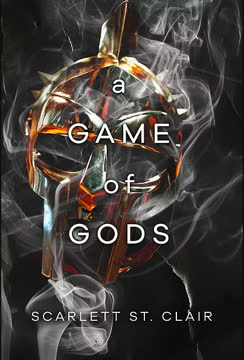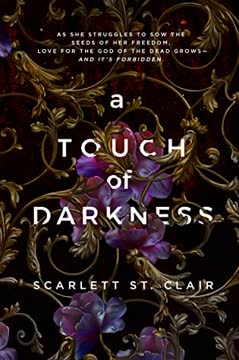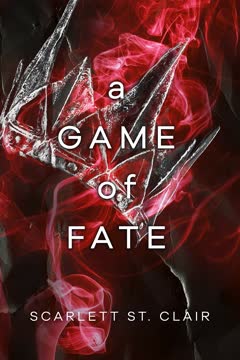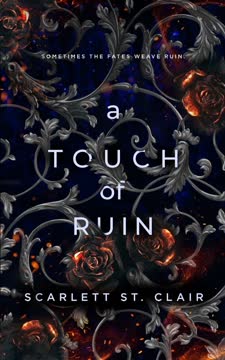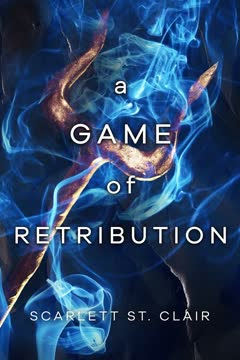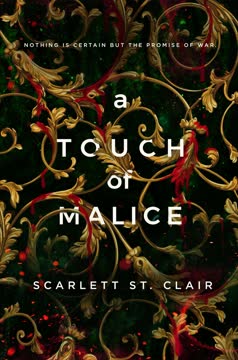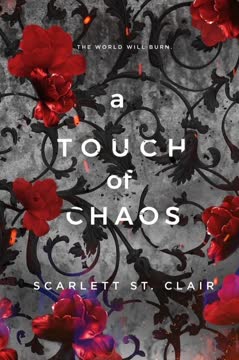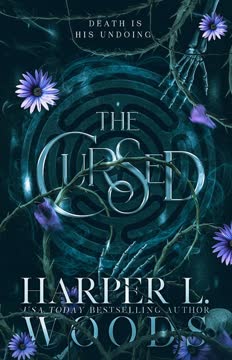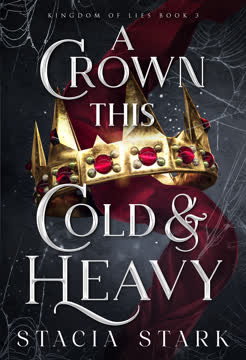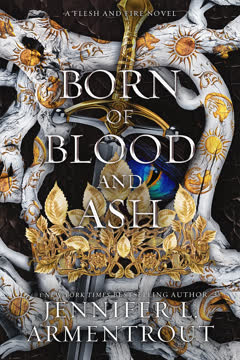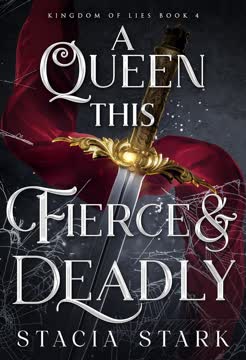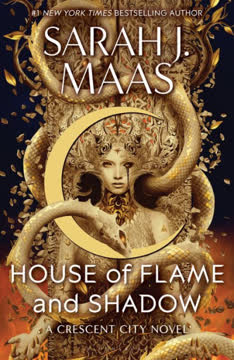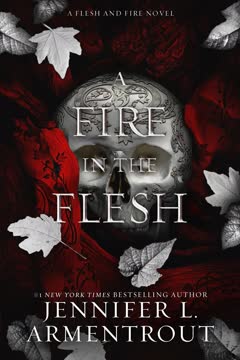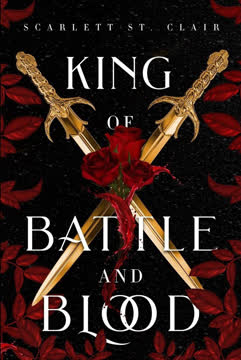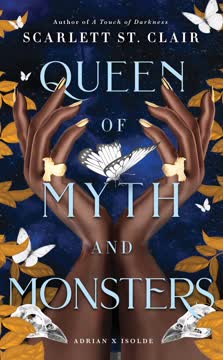Plot Summary
Flames and Fates Collide
Hades stands before a burning farmhouse, haunted by the murder of an innocent farmer who glimpsed the prophesied ophiotaurus—a monster whose death could end the gods. The Fates' machinations are at work, and Hades is forced to reckon with the consequences of his own actions, having killed an immortal and set in motion a chain of events that threaten the balance of power. As he gathers allies and adversaries—Dionysus, Hermes, and others—Hades realizes the stakes: whoever controls the ophiotaurus controls the fate of the gods. The world is already trembling, with Demeter's unnatural winter signaling war, and Hades is left to wonder if love or duty will win when the gods are forced to choose.
Vengeance and Vulnerability
Dionysus, tormented by his past and Hera's curse, seeks solace in chaos and carnal distraction. His relationship with Ariadne is fraught with tension, desire, and the shadow of vengeance. As he tries to protect her from Theseus and the world's cruelties, Dionysus is forced to confront his own capacity for care and the vulnerability that comes with it. Their dynamic is a dance of power and pain, with Ariadne's determination to save her sister and Dionysus's need for control clashing and intertwining. The gods' games are mirrored in mortal hearts, and the lines between protector and prisoner blur.
Nightmares and New Power
Haunted by nightmares of her abduction, Persephone struggles to reclaim her agency. Hades, desperate to comfort and protect her, is forced to witness her pain and his own limitations. Their love is tested in the crucible of trauma, as Persephone seeks not just healing but power—demanding to face her tormentor in Tartarus. In a harrowing confrontation, she claims her title and her rage, burning away the last vestiges of innocence. Hades is both awed and afraid of the darkness she now wields, and together they must navigate the shifting boundaries of love, power, and self.
Prophecies and Promises
The prophecy of the ophiotaurus is confirmed: its death could spell the end for the gods. Hades seeks answers from oracles and nymphs, but the Fates' designs remain inscrutable. Demeter's storm grows deadlier, and the gods' alliances fracture under the pressure of impending doom. Hades and Persephone's engagement is shadowed by Zeus's looming judgment, and the question of whether love can survive the machinations of fate becomes ever more urgent. The gods are forced to confront the limits of their power and the inevitability of loss.
Blood on Sacred Ground
The murder of Adonis, Aphrodite's favored, sends shockwaves through the divine world. Hades investigates, uncovering mortal hatred and the rise of the Impious—those who reject the gods. Persephone is targeted by violence, and the gods' inability to protect their own is laid bare. The lines between justice and vengeance blur, and Hades is forced to reckon with the consequences of his bargains and the fragility of those he loves. The gods' enemies are many, and their weapons are no longer just myth.
Monsters and Motives
The search for the ophiotaurus becomes a race against time and rivals. Dionysus and Ariadne navigate the underbelly of New Athens, confronting brothel owners, traffickers, and their own desires. Hades faces the ghosts of his past and the reality that the monsters he hunts are not always the ones with fangs. The gods' alliances are tested, and the cost of power—whether in the form of ancient weapons or personal sacrifice—becomes ever clearer.
Games of Control
Hades and Persephone's relationship is a constant negotiation of control, desire, and vulnerability. Their love is passionate and consuming, but haunted by trauma and the fear of loss. Games—both literal and metaphorical—become battlegrounds for trust and surrender. Dionysus and Ariadne's dynamic mirrors this, as they struggle to define the terms of their connection amid chaos and danger. The gods' power is both a gift and a curse, and the line between pleasure and pain is razor-thin.
Love in the Underworld
Amid the chaos, Hades and Persephone find solace in each other. Their love is a sanctuary, a place where wounds can heal and hope can bloom. They dream of a future together, of building a world where life and death are not enemies but partners. The Underworld becomes a place of beauty and possibility, shaped by their devotion. But even in these moments of peace, the threat of war and betrayal looms, and the gods know that happiness is always fleeting.
Betrayals and Bargains
The gods' world is one of bargains and betrayals, where every favor has a cost and every alliance is fragile. Hades is forced to confront the consequences of his deals, especially when Theseus calls in a favor that puts Persephone in mortal danger. Demeter's true motives are revealed, and the gods' enemies close in. The lines between friend and foe blur, and the gods must decide what—and who—they are willing to sacrifice.
Storms of the Heart
Demeter's storm reaches its zenith, burying cities and killing thousands. Persephone's grief and rage ignite a new power within her, one that threatens to consume everything. The gods are forced to choose sides as the world teeters on the edge of destruction. Hades and Persephone's love is both a beacon and a weapon, and the question of whether it can save or doom them becomes ever more urgent.
War at the Gates
The gods go to war—against each other, against mortals, and against fate itself. The Panhellenic Games become a battleground, and the Underworld is flooded with the dead. Persephone is revealed to the world as a goddess, and the balance of power shifts. Theseus and Triad make their move, wielding weapons that can kill gods. The old order is breaking, and the cost of survival is higher than ever.
Sacrifice and Survival
In the aftermath of battle, the gods count their losses and reckon with the price of survival. Persephone is forced to make impossible choices, sacrificing her own safety for those she loves. Hades is imprisoned, Persephone is taken, and the world is left in chaos. The gods must decide what they are willing to endure—and what they are willing to become—to save what matters most.
The Labyrinth's Shadow
Hades is trapped in a labyrinth, forced to confront both physical and psychological torment. Persephone is held captive by Theseus, her power and will tested to the breaking point. The Minotaur's shadow looms, and the gods' enemies close in. The labyrinth becomes a metaphor for the gods' own fears and failings, and the only way out is through.
Chains and Choices
Hades and Persephone's love is tested by captivity and trauma. The chains that bind them are both literal and symbolic, representing the choices they make and the power they wield over each other. Consent, trust, and communication become the keys to survival and healing. The gods learn that true power lies not in domination, but in the freedom to choose—and to be chosen.
The Queen's Fury
Persephone claims her power, unleashing her fury on those who have wronged her and the world. The gods are forced to reckon with the consequences of their actions, and the old order is shattered. Hades and Persephone stand together as king and queen, forging a new path forward. The world trembles on the edge of transformation, and the gods must decide what kind of rulers they will be.
The Price of Power
The gods pay a heavy price for their power—losing friends, allies, and parts of themselves. Hades and Persephone's marriage is both a triumph and a tragedy, marked by joy and grief in equal measure. The world is forever changed, and the gods must learn to live with the consequences of their choices. Love endures, but it is never without cost.
The Wedding and the War
Hades and Persephone are finally wed in a ceremony that is both intimate and grand. Their love is celebrated by gods and souls alike, but the specter of war remains. The gods gather, alliances are tested, and the future is uncertain. The wedding is both an ending and a beginning, a moment of hope before the storm.
Endings and Eternity
In the aftermath of war and loss, Hades and Persephone find peace in each other. Their love endures, shaped by the trials they have faced and the choices they have made. The world is changed, but hope remains. The story ends not with a final victory, but with the promise of eternity—a love that survives even the end of the gods.
Characters
Hades
Hades is the brooding, complex ruler of the Underworld, burdened by the weight of his past decisions and the fates of those he loves. His relationship with Persephone is both his greatest strength and his deepest vulnerability. He is fiercely protective, often to the point of possessiveness, and struggles with the limits of his power—especially when faced with Persephone's trauma and the machinations of the Fates. Hades's journey is one of learning to balance control with surrender, and to accept that true strength lies in vulnerability and trust. His alliances and bargains shape the fate of gods and mortals alike, and his love for Persephone is both a beacon and a curse.
Persephone
Persephone is a woman forged in trauma and resilience, determined to claim her power and agency in a world that seeks to control her. Her journey from innocence to queenhood is marked by pain, rage, and the struggle to heal. She is compassionate and fiercely loyal, willing to sacrifice herself for those she loves. Persephone's relationship with Hades is a crucible for growth, forcing her to confront her fears and embrace her darkness. As she awakens to her true power, she becomes a force to be reckoned with—capable of both creation and destruction, and determined to shape her own destiny.
Dionysus
Dionysus is a god marked by contradiction—wild and controlled, vengeful and vulnerable. Cursed by Hera and scarred by his past, he seeks solace in chaos and pleasure, but is ultimately searching for connection and meaning. His relationship with Ariadne is a slow-burning fire, fraught with tension, desire, and the fear of loss. Dionysus's journey is one of learning to trust, to care, and to accept that love is both a risk and a reward. His alliances are pragmatic, but his loyalty—once earned—is fierce.
Ariadne
Ariadne is a woman of grit and determination, shaped by loss and the need to protect her sister. Her relationship with Dionysus is a battle of wills, marked by desire, defiance, and the struggle for agency. Ariadne is both a victim and a fighter, refusing to be defined by her trauma. Her journey is one of reclaiming power, forging alliances, and learning to trust in love—even when it terrifies her. She is a catalyst for change, challenging the gods and mortals alike to confront their own darkness.
Demeter
Demeter is a force of nature—unyielding, vengeful, and driven by her obsession with control. Her love for Persephone is twisted by possessiveness and fear, leading her to unleash a deadly winter that threatens the world. Demeter's actions are both a declaration of war and a desperate attempt to reclaim what she has lost. She is a master manipulator, willing to sacrifice anything and anyone to achieve her goals. Her relationship with Persephone is the engine of the story's conflict, and her choices have consequences that ripple through the world of gods and mortals.
Theseus
Theseus is a charismatic and ruthless leader, driven by ambition and a desire for power. He is both a product and a challenger of the gods, using mortal discontent to fuel his rebellion. Theseus is a master of manipulation, willing to betray, torture, and kill to achieve his aims. His obsession with Ariadne and his rivalry with the gods make him a formidable antagonist. He is the embodiment of hubris, believing himself destined to rule—and willing to destroy anyone who stands in his way.
Hermes
Hermes is the trickster of the gods, quick-witted, irreverent, and fiercely loyal to those he loves. He is both comic relief and a source of wisdom, navigating the shifting alliances of the divine world with agility and charm. Hermes's loyalty to Hades and Persephone is tested by the demands of oaths and the consequences of failure. He is a bridge between worlds, moving easily among gods, mortals, and monsters. His journey is one of learning the true cost of loyalty and the value of friendship.
Aphrodite
Aphrodite is a goddess marked by passion, pride, and pain. The murder of her favored and the attack on her sister drive her to seek vengeance, blurring the lines between justice and retribution. Her relationships—with Hephaestus, Harmonia, and the other gods—are fraught with longing and loss. Aphrodite's power is both a gift and a curse, and her journey is one of learning to balance love with wrath, and to find healing in the aftermath of betrayal.
Hephaestus
Hephaestus is a god of strength and vulnerability, marked by his devotion to Aphrodite and his struggle with anger and inadequacy. His creations shape the fate of gods and mortals, and his alliances are crucial in the coming war. Hephaestus's journey is one of learning to forgive, to trust, and to find worth beyond his wounds. His love for Aphrodite is both his greatest strength and his deepest pain.
Hecate
Hecate is the voice of wisdom and the keeper of secrets, guiding Hades, Persephone, and the other gods through the labyrinth of fate. She is both mentor and challenger, pushing those she loves to grow and to face their fears. Hecate's power is subtle but profound, and her loyalty is unwavering. She is the guardian of thresholds, standing at the crossroads of life and death, love and loss, power and surrender.
Plot Devices
Prophecy and Fate
The prophecy of the ophiotaurus and the Fates' manipulations are the engine of the story's tension. Every character is caught in the web of destiny, forced to reckon with the limits of their power and the inevitability of loss. Prophecy shapes the gods' actions, fueling paranoia, betrayal, and desperate bargains. The narrative structure is cyclical, mirroring the themes of life, death, and rebirth. Foreshadowing is woven throughout, with omens, dreams, and oracles hinting at the tragedies and triumphs to come. The story's power lies in its exploration of whether fate can be changed—or only endured.
Dual Perspectives and Interwoven Narratives
The novel alternates between Hades and Dionysus (with key chapters from Persephone, Ariadne, and Theseus), allowing readers to experience the story's events from different angles. This structure enriches the emotional arc, highlighting the contrasts and parallels between love stories, traumas, and quests for power. The interwoven narratives create a tapestry of motivations and consequences, emphasizing the interconnectedness of all characters and the ripple effects of every choice.
Trauma, Healing, and Consent
The story foregrounds the impact of trauma—both personal and collective—on the gods and mortals alike. Nightmares, flashbacks, and physical wounds are mirrored by emotional scars. Healing is depicted as a process, not a destination, requiring trust, communication, and the willingness to confront pain. Consent and control are central themes, explored through sexual dynamics, power struggles, and the negotiation of boundaries. The narrative challenges traditional notions of strength, suggesting that true power lies in vulnerability and the freedom to choose.
War, Sacrifice, and the Cost of Power
The looming war between gods and mortals is both literal and metaphorical, representing the struggle for agency, justice, and meaning. Sacrifice is a recurring motif—whether in the form of lost lives, broken alliances, or the surrender of control. The cost of power is ever-present, and the story does not shy away from depicting the pain, grief, and moral ambiguity that come with it. The narrative structure builds toward moments of crisis and catharsis, forcing characters to confront what they are willing to lose—and what they are willing to become.
Analysis
Scarlett St. Clair's A Game of Gods is a lush, emotionally charged reimagining of Greek myth that explores the intersections of love, power, trauma, and fate. At its core, the novel is a meditation on the cost of agency—what it means to choose, to surrender, and to survive in a world where destiny is both a prison and a promise. Through the dual perspectives of Hades and Dionysus (and the vital voices of Persephone and Ariadne), the story delves into the psychological scars left by violence and the slow, painful process of healing. The gods are rendered as deeply human—flawed, passionate, and haunted by their own limitations. The narrative's focus on consent, communication, and the negotiation of power dynamics is both timely and timeless, offering a nuanced portrayal of love as both sanctuary and crucible. The novel's structure—interweaving personal and cosmic stakes—underscores the interconnectedness of all things, and its refusal to offer easy answers is a testament to its depth. Ultimately, A Game of Gods is a story about the courage to face the darkness within and without, and the hope that, even in the face of fate, love can endure.
Last updated:
Review Summary
A Game of Gods received mixed reviews, with an average rating of 4.02 out of 5. Many readers enjoyed the romance and spice between Hades and Persephone, as well as the introduction of Dionysus and Ariadne's storyline. However, some found the book repetitive, lacking in plot development, and overly focused on sex scenes. Critics felt Hades' lack of communication with Persephone was frustrating. The multiple POVs, including Theseus, received mixed reactions. Despite criticisms, fans of the series remained eager for the final installment.
Hades x Persephone Reading Order Series
Similar Books
Download PDF
Download EPUB
.epub digital book format is ideal for reading ebooks on phones, tablets, and e-readers.
